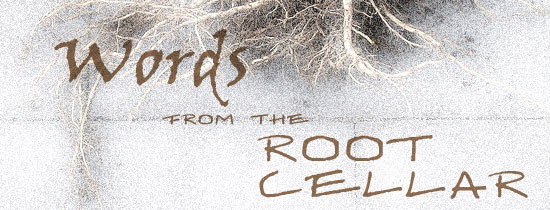
The Farmstead in Winter
By Axie Barclay
The term confirmation bias refers to the tendency to search for or interpret new information in a way that confirms our beliefs, while avoiding information or interpretations that conflict with our beliefs.
http://weightology.net/weightologyweekly/?page_id=390
We all have our own biases. Red M&Ms are better than brown, St. Patrick’s Day is better than New Years, birdsfoot trefoil outperforms alfalfa for rotational grazing systems, romance novels are hard to stomach, and, of course, cherry Coke is the best mixer for adult beverages. Essentially we’re made up of these beliefs and biases, for country music over jazz or salt on our watermelon. And typically we seek out information that confirms these biases. The news report that says the dye in brown M&Ms is bad for you and that of green beer is good for you due to the nature of the carbonation polyphenols. (Both of those last examples were pulled out of a place where the sun don’t shine, by the way.) The point is that generalizations and biases have their uses. Getting food poisoning from a late night ill-chosen gas station tuna fish sandwich will probably cure you of making questionable seafood choices in the future and thus encourage your survival and contribution to the larger human gene pool. But not all biases have life or death consequences.
Seeking out information that supports what we already believe tends to ignore information in conflict with our beliefs. If you think romance novels are awful, you’re not going to seek out book reviews that praise the latest Nora Roberts or Nicholas Sparks novel. Or if you can’t stand children, the information you retain will probably trend toward the benefits of not having babies, such as that couples without children report being happier and have more intimate encounters than couples who have produced offspring.
Ignoring information that challenges our beliefs has a variety of consequences. It can keep you from trying new things, going places, exploring other perspectives and opportunities. Just because I think a certain grass or legume is absolutely wrong for my grazing system doesn’t mean that its wrong for everyone and it’s a mistake to tell everyone else that it’s wrong for them. Not to mention everything you miss out on by being biased. If you avoid whole sections of the bookstore because you think you don’t like “those kinds of books” or “they’re just not my thing,” some really great reads might pass you by. Just because you didn’t like Twilight or even The Hobbit, doesn’t mean that vampires and fantasy genres aren’t for you. There’s a whole array of authors, titles, and voices out there that might appeal to your inner reader if given the chance. Maybe you’re not a mainstream reader and seek out the small titles or you only like Booker Man listed books. The point is, the wrong kinds of biases can lead to closed-minded attitudes and missing out on some really cool experiences.
The human mind is an incredible tool and has an amazing capacity to change reality based on our perceptions. If you think farming and farmers are evil and farm animals are abused, it’s going to be very hard for me to affect your perception. Even something as small as thinking one bottled water tastes different from another. If you’re convinced Ice Mountain is better than Evian, it’s going to take a lot of work to think differently. So while biases can save our life by avoiding gas station sushi, it can also cost a lot in other areas. Being aware of one’s biases and perceptions is a very important skill for self-awareness. Time spent alone in the spring, with nicer weather returning and a new garden going in, new books on the shelves and the summer reading list heating up, is a great time to think about bias and evaluate where your own tendencies for this occur. Some of the more self-aware people I know spend a lot of time on their own in nature and are better people for it. Conversely, a few of them become more biased and closed-minded due to the lack of interaction with new ideas, so there is a fine line. It’s all about balance; balance of self-awareness with self-absorption, balance of new ideas and old classics, balance of nature and technology. They don’t cancel one another out, but rather work alongside one another, hopefully toward the benefit of all involved.
March Book List
As an avid library user and book reviewer, I thought a fun add-on to the column every month would be books that stood out to me in the past month, either because they are (ideally) awesome or because they relate to the topic of the month in some way. So in no particular order, here are four books that caught my attention recently.
1. Salt Sugar Fat by Michael Moss. Found this one reviewed on NPR and instantly added it to my ‘to read’ list. Always scavenging the latest on our broken food system. (My confirmation bias!)
2. The Secrets of Happy Families by Bruce Feiler. My significant other teaches in positive psychology so there’s a lot of talk around our house about raising our son in a resilient, optimistic household. This looked like a good book to add to our reading list.
3. Savages by Don Winslow. This was released in 2010, but I just discovered it in February. Changed the way I approach fiction. Perfectly readable fiction that takes the shape of poetry. Changed my life.
4. What Matters in Jane Austen? by John Mullen. Have JA to thank for the title this month and Mullen for his insights and explanations that add a deeper layer of understanding for Austen’s world.
Happy Reading!
 Axie Barclay is a Michigan writer with a cow-habit. Having discovered the joys and potential for growth inalternative agriculture, she quests ever longer and harder for ways to combine farming and writing into a business. When not milking cows, making disgruntled noises at the latest disgusting thing the heeler dogs dredge up, riding horses, or keeping the fence up around her small beef herd, she’s holed up reading an eclectic array of books or tapping out pages. When not working, she enjoys kicking back with her honey, family, and friends at a bonfire with some beers. Chat her up on Twitter and Facebook, /axieb, or http://barclayfarmsandlit.blogspot.com where she delves into literature and agriculture with a relish… and occasionally ketchup. Soon to be homemade.
Axie Barclay is a Michigan writer with a cow-habit. Having discovered the joys and potential for growth inalternative agriculture, she quests ever longer and harder for ways to combine farming and writing into a business. When not milking cows, making disgruntled noises at the latest disgusting thing the heeler dogs dredge up, riding horses, or keeping the fence up around her small beef herd, she’s holed up reading an eclectic array of books or tapping out pages. When not working, she enjoys kicking back with her honey, family, and friends at a bonfire with some beers. Chat her up on Twitter and Facebook, /axieb, or http://barclayfarmsandlit.blogspot.com where she delves into literature and agriculture with a relish… and occasionally ketchup. Soon to be homemade.
